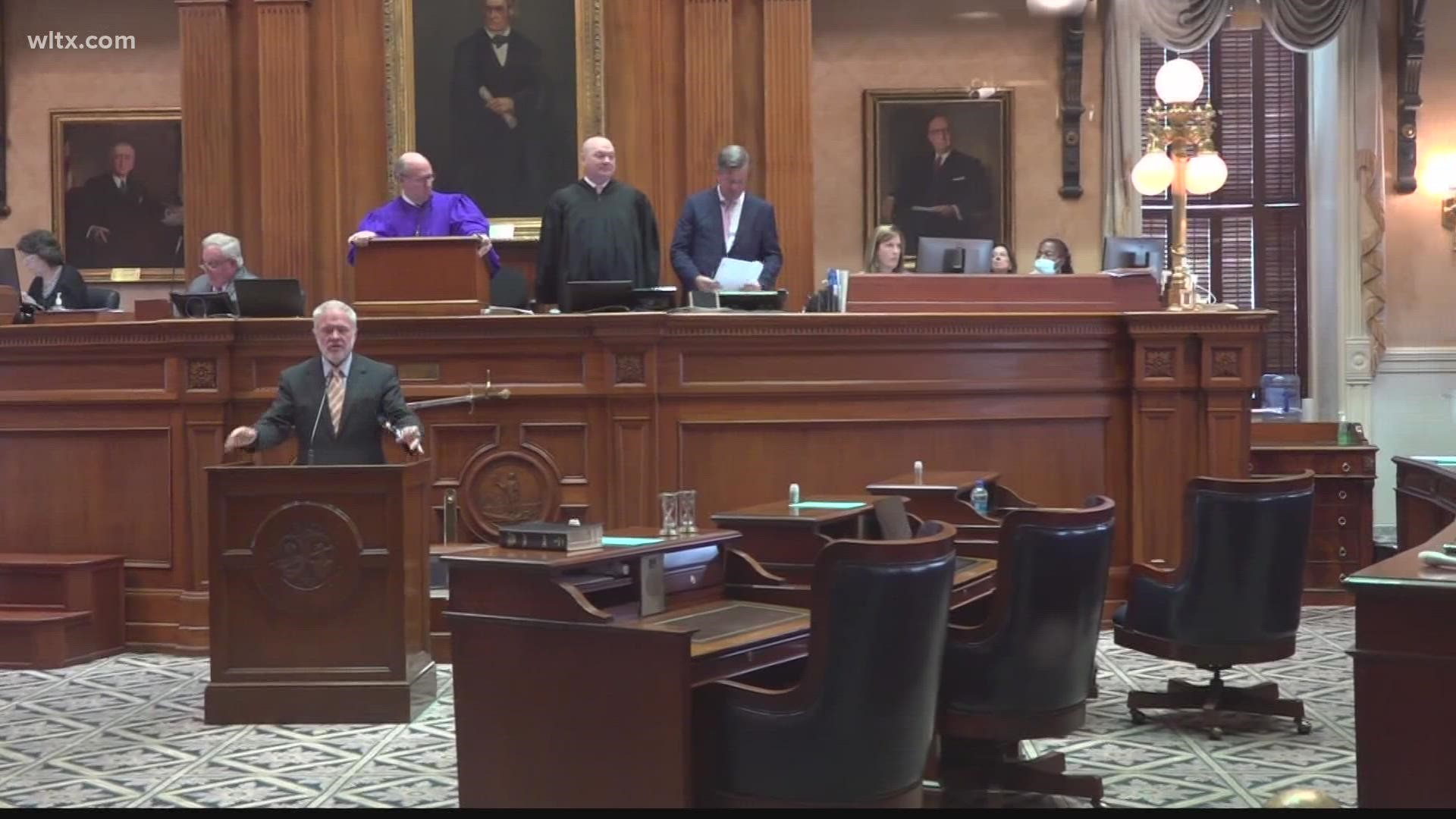COLUMBIA, S.C. — In a federal court in Charleston this week, South Carolina NAACP lawyers will be arguing that the state's newly-formed political district maps are aimed at strategically diluting voter power on the basis of race.
State and Congressional voting maps are redrawn every 10 years after the release of new census data with the intent of making sure districts continue to represent the population.
The new map was passed in January after objection from Democrats and government groups like the League of Women voters.
"What we’re seeing in the map that has been passed is one that does dilute the voting influence of black voters and other minority voters," said Lynn Teague with the League of Women Voters of South Carolina.
Sen. Dick Harpootlian (D-Richland) also voted against the map.
"They split counties and they split precincts. And this plan does a real disservice to those of us who believe that things like counties ought to be kept whole," said Harpootlian.
Both Harpootlian and Teague said they are testifying at the trial later this week.
According to the lawsuit, multiple districts in the state were designed to consolidate the votes of Black residents so that their influence didn't flow into surrounding districts. However, it also accuses the legislature of "cracking" districts in other parts of the state, intentionally separating Black voters on political maps in an effort to dilute their power.
The lawsuit alleges that both practices fly in the face of the past Voting Rights Act which, in part, aimed to prevent these practices in South Carolina and elsewhere.
The suit also claims the maps violate both the 14th and 15th amendments to the U.S Constitution.
The 14th amendment granted citizenship and equal civil and legal rights to African Americans after the American Civil War and the 15th amendment guaranteed that the right to vote not be denied based on "race, color, or previous condition of servitude."
Republican lawmakers like Sen. Josh Kimbrell (R-Spartanburg) who supported the map said keeping voters in the same district was one of the biggest considerations.
"We keep people familiar with where they're voting and what their race their voting, and I think those are important considerations. And that's certainly what happened in my vote," said Kimbrell.
A decision is expected after October 28th. Regardless of the decision, the challenged map will be used in this year's general election.

